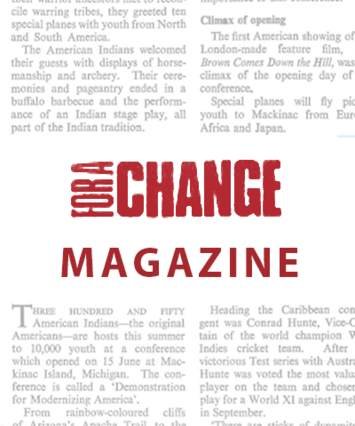I and another Hindu woman were on a train from Bombay to north India, on the day Mrs Gandhi was assassinated by two Sikh bodyguards. The train was stopped by angry villagers who came looking for Sikh passengers. I confronted the mob and tried to reason with them. They got angry and assaulted me, and the two innocent Sikh passengers in my carriage were dragged out, badly beaten up, then set on fire. When our train left, we thought them dead.
This shook me to the core. I felt angry at what our people had done and at what we had allowed to happen in our country. I blamed several people - politicians, many others whom I felt were responsible. And I also felt guilty at not being able to protect innocent people. Then one night I had the thought that as long as I had blame, anger and guilt in my heart I would neither be able to help the Sikhs, who felt deeply wounded and humiliated, nor the non-Sikhs, who were feeling self-righteous and to an extent guilty.
Then I decided I too must accept the responsibility for what had happened - that people like me had contributed to the tragedy because of our attitudes of indifference, arrogance and prejudice. Once I accepted this in my heart, I began to see what I could do as an ordinary individual to help rebuild what seemed so totally broken down. So I wrote to Sikhs across India, most of whom I had not even met - journalists, politicians, generals in the army, police officials, ordinary housewives and students. Later I met many of them personally. To all of them I spoke of my experience on the train and expressed regret at the deep wounds and humiliation felt by their people. It helped to heal many a heart.
Three months after this incident we had a message that the two passengers whom we had thought dead, might be alive. So I undertook the same journey from Bombay to north India to find out the truth. I visited the families and found the two men indeed alive. They were still recovering from their serious bums and fractures, and it was a joyous meeting with them and their families. When I said how sorry I was that we had not been able to protect them, they said, 'In fact we feel sorry that you had to suffer because of us.' They also said that perhaps God had given them a gift of new life so they could do something about bridging the gulf between their community and others. The fact that these men, who had every right to be bitter, were totally without any bitterness remains a challenge to me.
Today a group of Hindus and Sikhs is working towards building the right spirit between our communities. Last year in Delhi we were talking to some of the Hindu community accused of having taken part in the '84 riots. At first they angrily denied it. Later they said, 'Well, some from our group did take part in those riots. But we were used and manipulated. It wasn't really our fault.' We asked, 'Why did you allow yourselves to be used and manipulated in that fashion?' They were quiet and went away.
After several days they came back and said, 'It's been on our conscience since '84 that some from our group committed these terrible crimes. We feel guilty about it, but don't know what to do.' So a meeting was arranged between them and a retired Sikh high court judge who was helping the riot victims. These Hindus apologized to the judge, and since then have met other Sikhs who suffered during the riots.
Often the feelings within India between the majority and minority communities are similar to the feelings between India and her neighbouring countries. When we Hindus begin to understand the fears, hopes and aspirations of the minority groups within India, then I believe we will also understand what our neighbours feel about us. Our only hope lies in people giving up retaliation in the spirit of forgiveness.
By SUSHOBA BARVE
English


